Getting from 367 million children without school toilets to 0
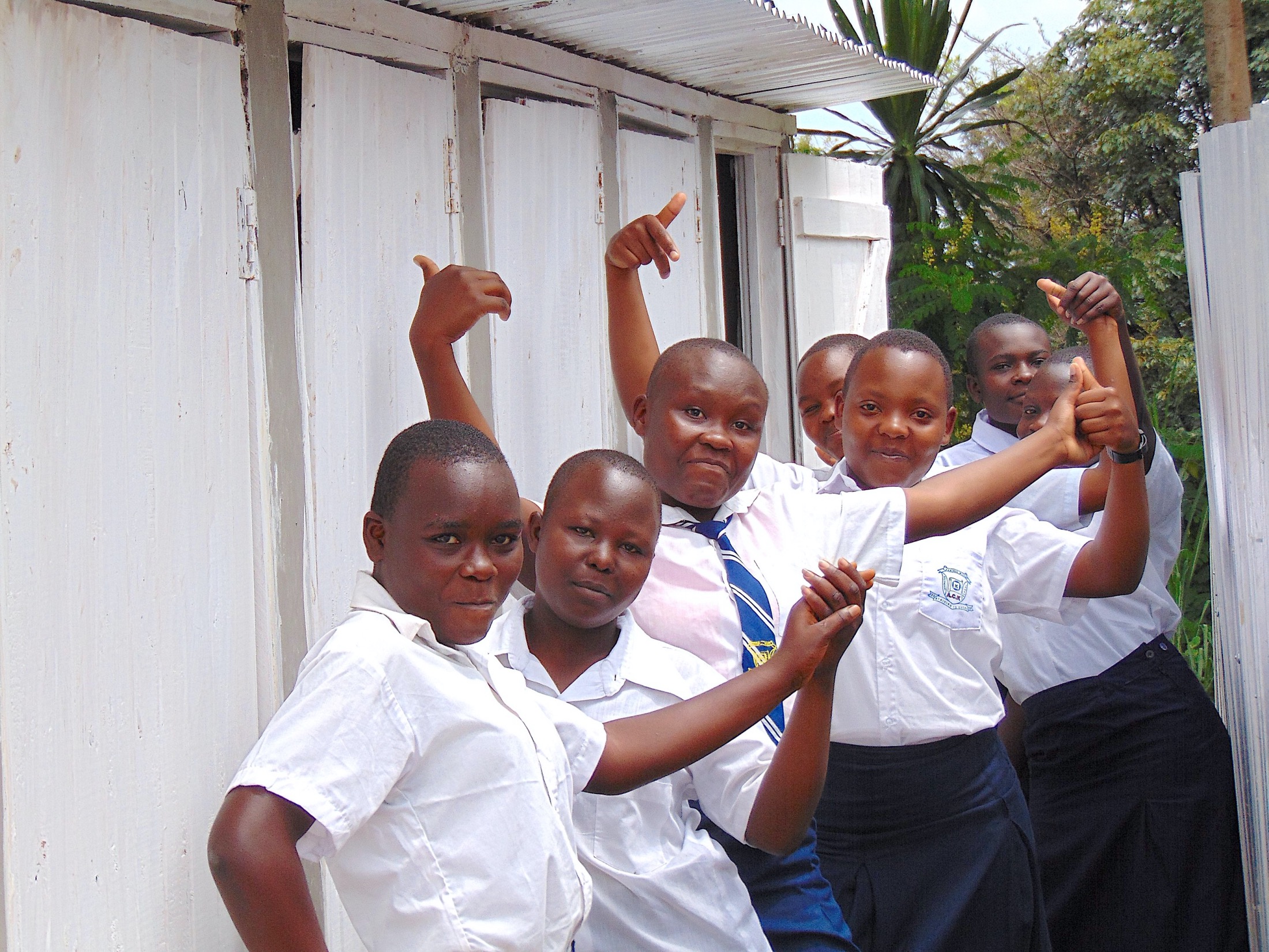
Girls celebrate new latrines. (Photo taken before physical distancing)
One out of every four people in the world still does not have access to basic sanitation services. These roughly 2 billion people do not have a safe place to go to the bathroom, according to a new report from the World Health Organization (WHO) and the UN Children’s Fund (UNICEF) released to mark World Toilet Day.
The impacts of inadequate sanitation disproportionately affect the most vulnerable and disadvantaged, particularly women and people living with disabilities.
We see this first hand.
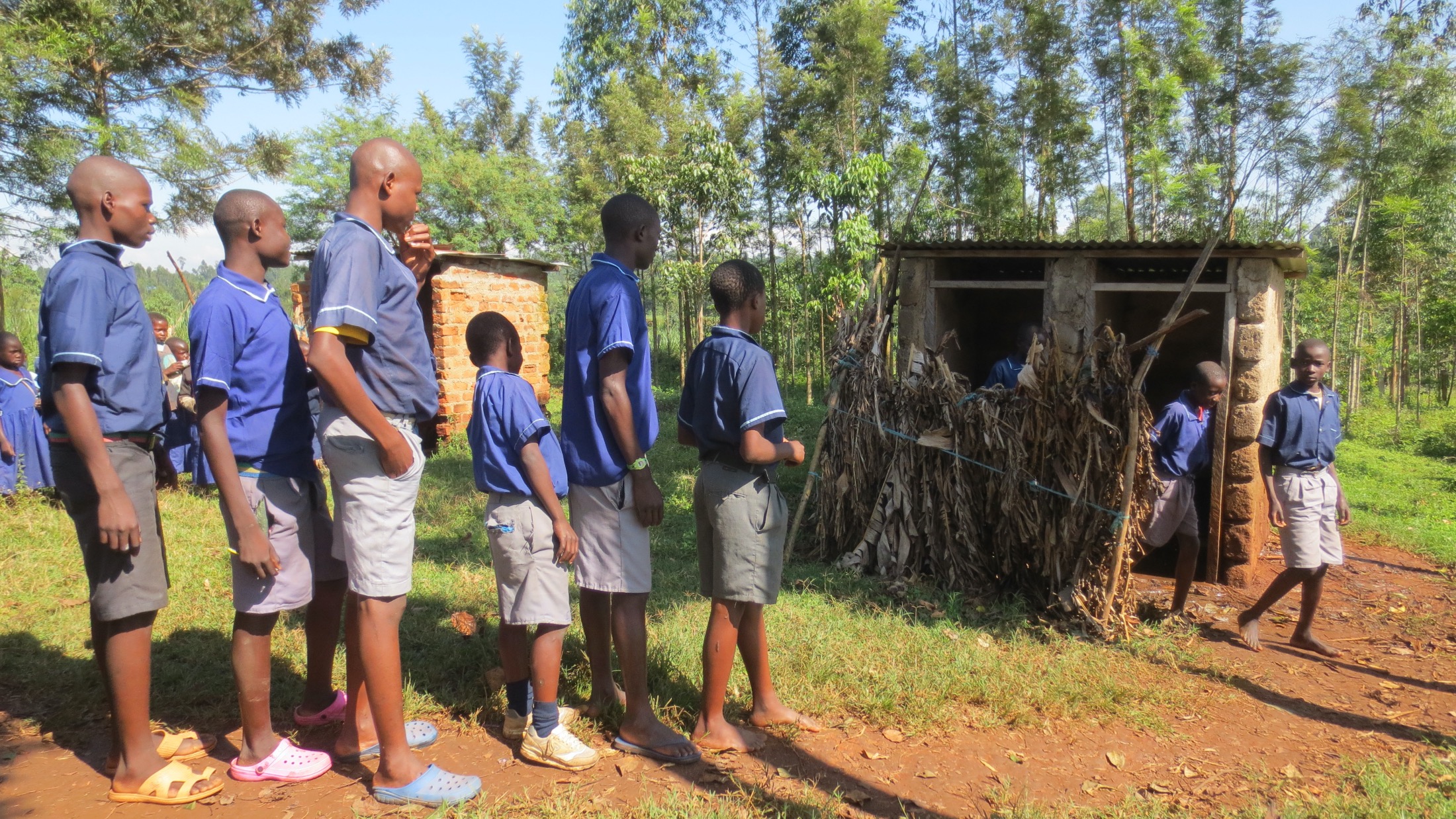
Boys line up to use latrines without doors for privacy.
Our teams encounter schools that do not have enough latrines and, in some cases, no latrines at all for the students. Students complain of waiting in long lines because there are not enough toilets. We also hear stories of latrines in such terrible shape – including no doors for privacy – that students go to the bathroom elsewhere. In those cases, that often means in the nearest bushes or walking all the way home.
“Initially, parents transferred their children to other schools because we did not have water and enough toilets. As a matter of fact, teachers were sharing toilets with pupils,” shared Jane Ayodi, Headteacher at Magaka Primary School in Kenya.
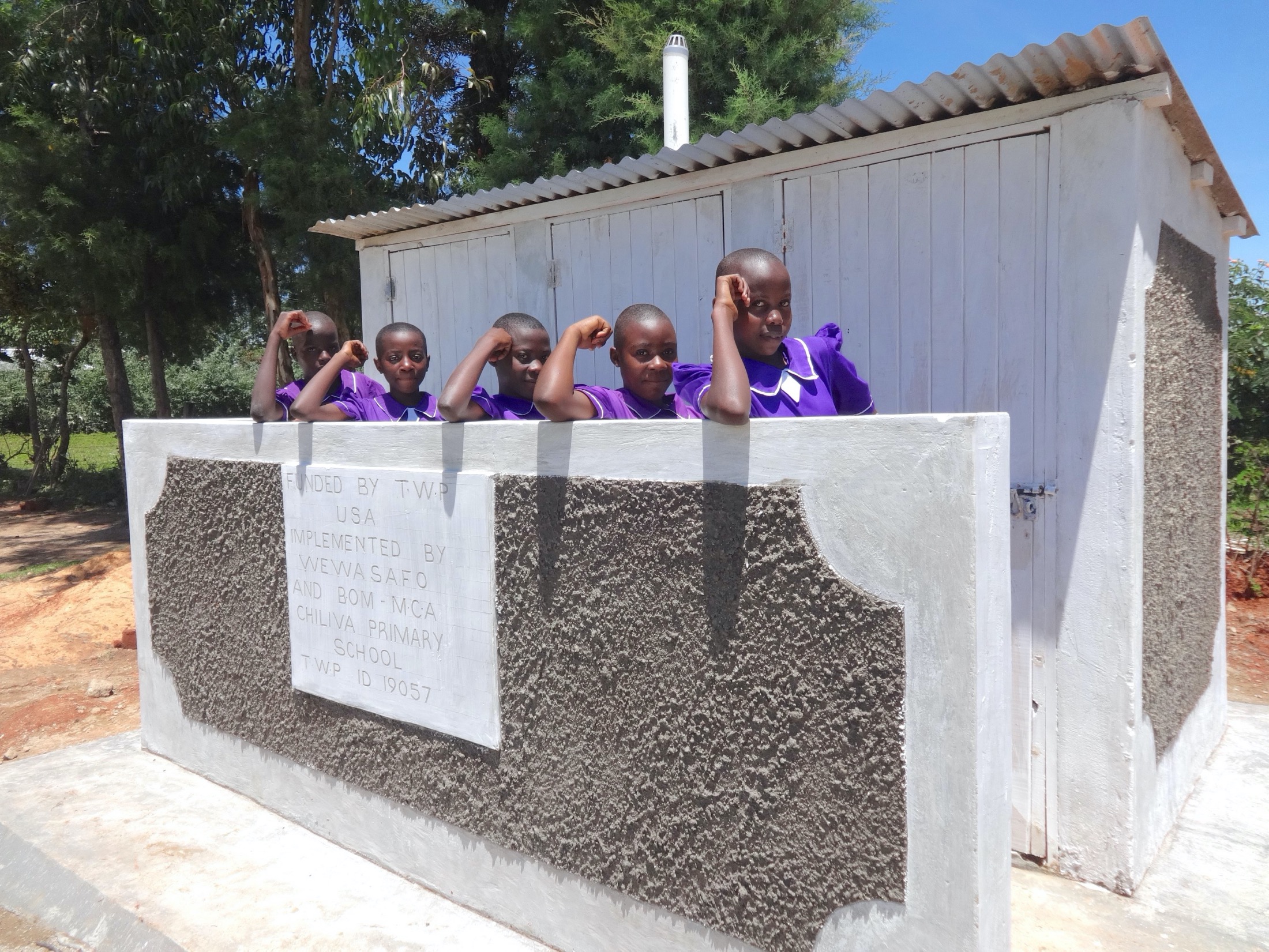
Girls pose in front of their new latrines. (Photo taken before physical distancing)
In Kenya, national rules require that schools have enough latrines for their students, but frequently the schools we encounter do not have the resources to build more latrines, and they do not have access to water. These schools face closure if they do not install new latrines. That is one reason why our program in Western Kenya includes the construction of ventilation improved pit (VIP) latrine blocks with every school water point.
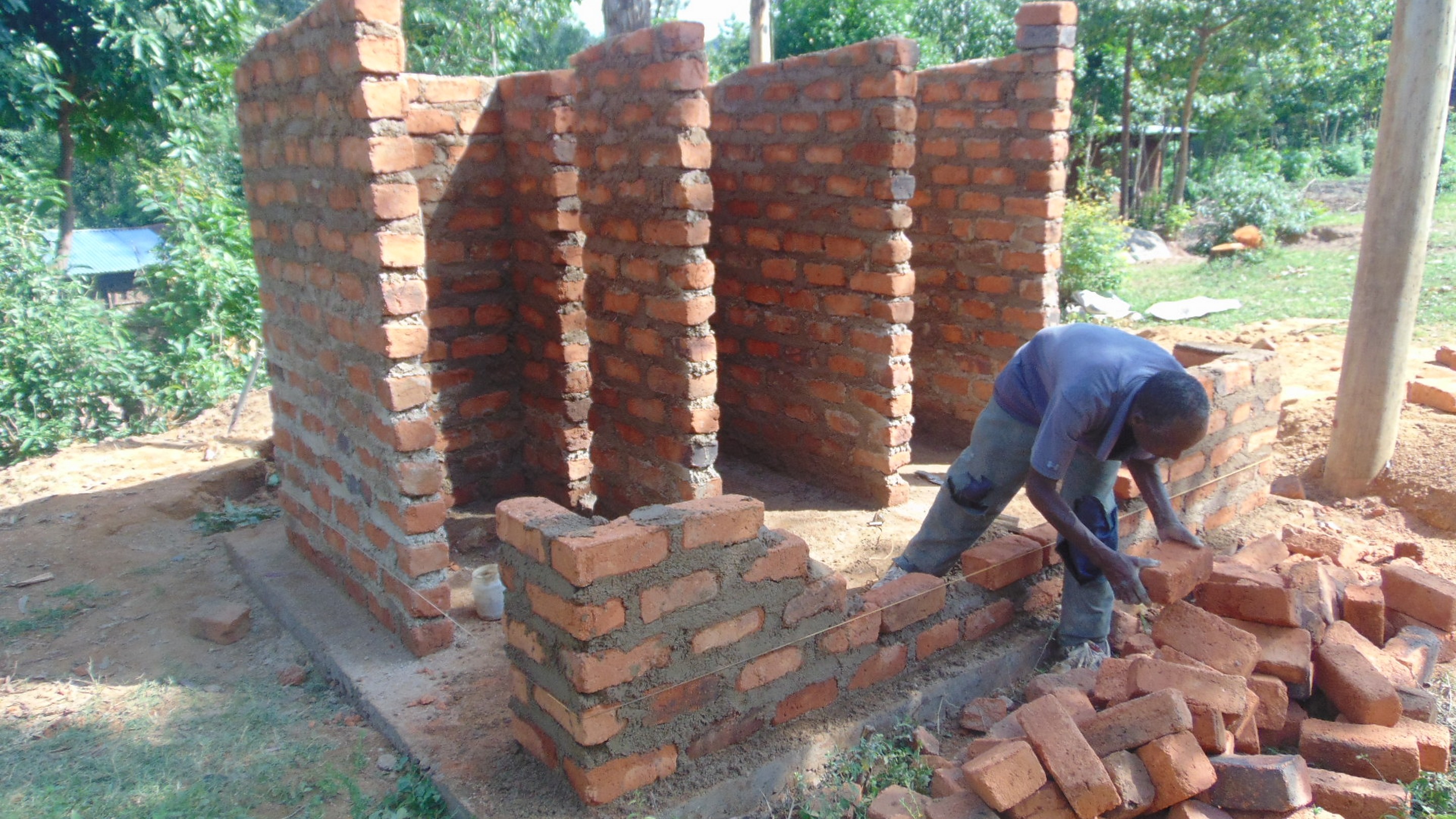
School latrines under construction.
In addition to school closures, the lack of access to improved sanitation is a significant public health issue. Diseases like cholera, intestinal worms, and polio are spread easily when people do not have a toilet. Worldwide, there are still approximately 673 million people who have no toilets and practice open defecation, and there are 367 million school-age children who lack a toilet at school.
“The consequences of poor sanitation are devastating to public health, and social and economic development,” said Kelly Ann Naylor and Bruce Gordon, Heads of WaSH for UNICEF and WHO.
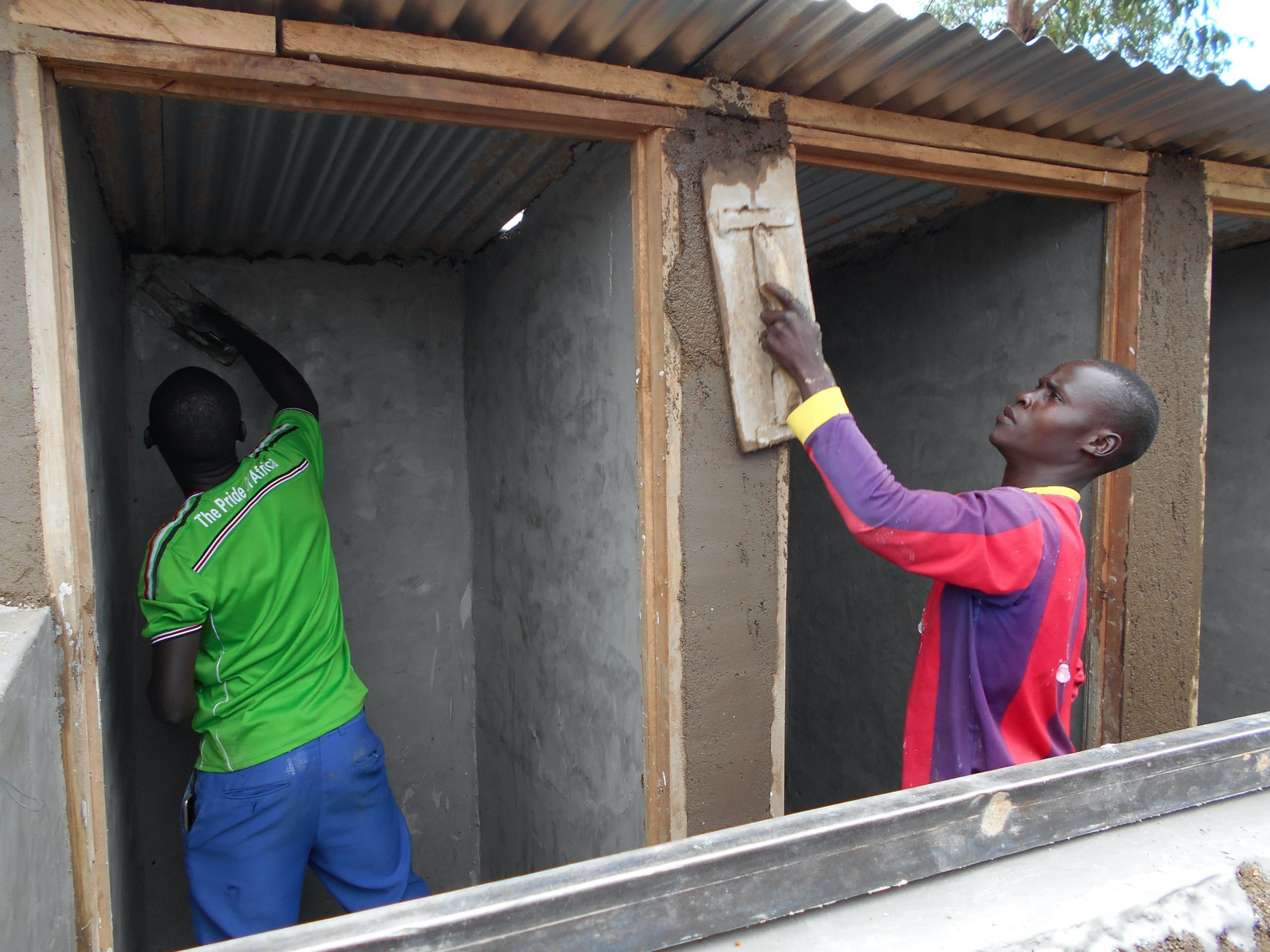
Cementing walls for new latrines.
The benefit of safe sanitation is clear. And it is a sound investment. The return on investment is significant, with the WHO and UNICEF report estimating that every $1 spent on sanitation will yield a $5 economic gain. When people have access to safe sanitation, they are sick less often. Children who might have died from diarrheal diseases can live long, full lives. Parents who spend time and money treating issues caused by unsafe sanitation can direct their resources elsewhere.
World Toilet Day is a reminder of the need to achieve the global sanitation goal for all by 2030. The WHO and UNICEF report calls for groups and governments to accelerate their efforts to gain universal access.
The Water Project will continue to reach schools and communities where we work with safe water, improved hygiene, and improved sanitation.

Girls celebrate their new latrines at school. (Photo taken before physical distancing)
Tweet